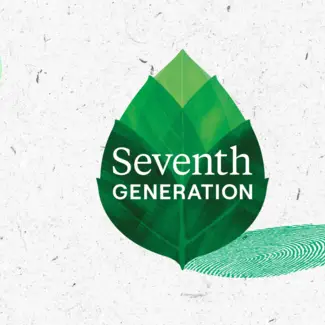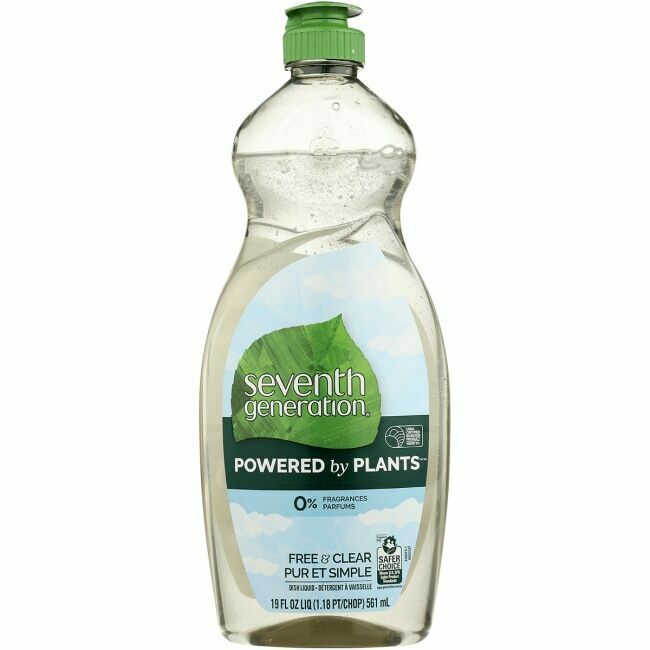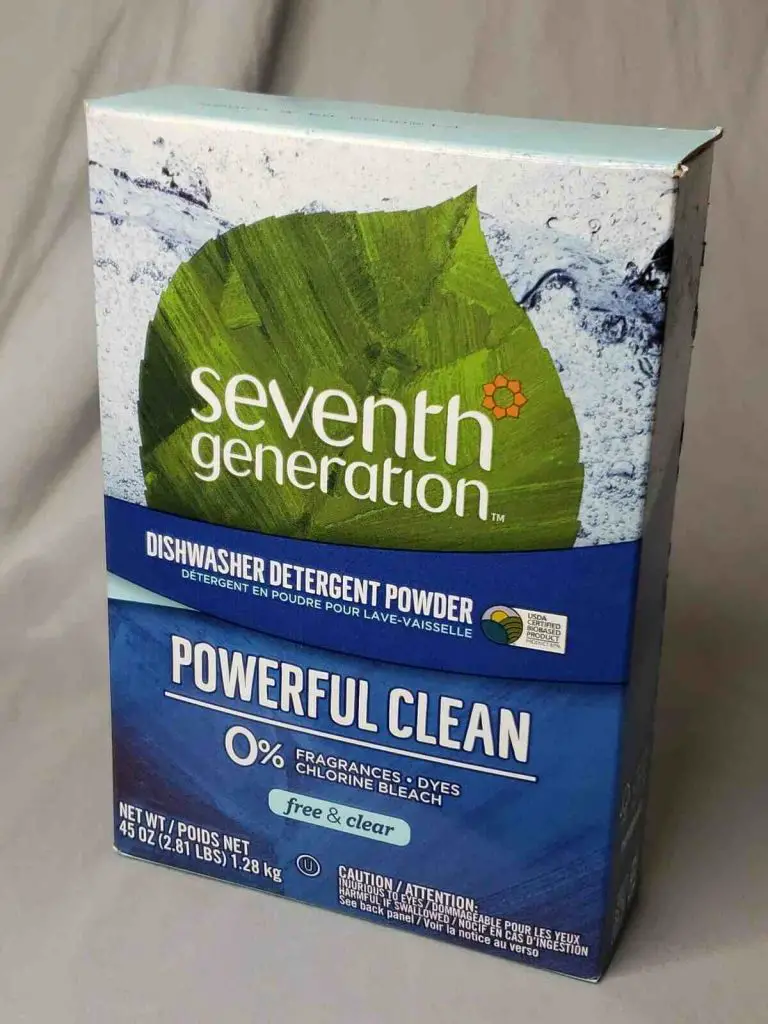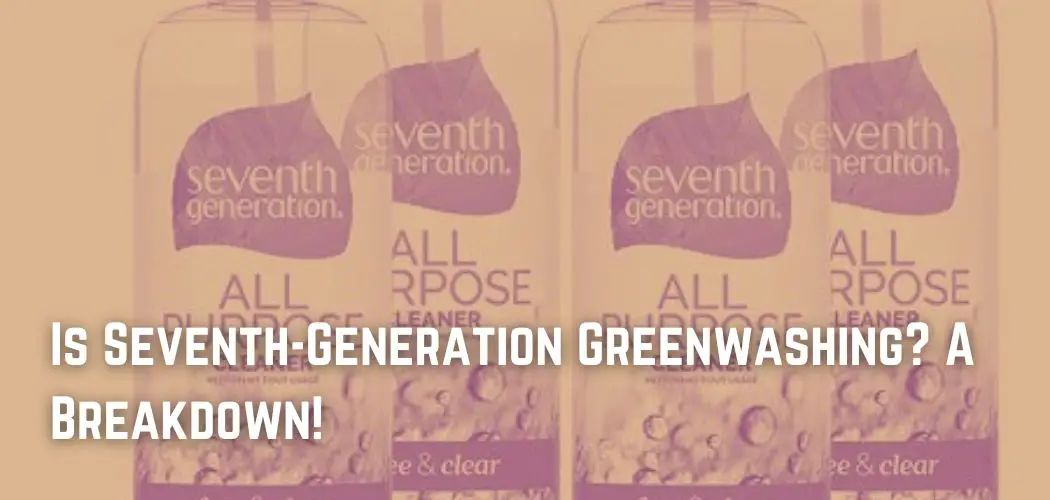Seventh Generation is one of the most well-known firms in the market for eco-friendly home goods.
They sell a range of cleaning and hygiene products that are made to be better for the environment than regular products.
They sell, among other things, laundry detergent, diapers, household cleaners, and feminine hygiene goods.
Much has been stated about the environmental dangers of ordinary, blatantly non-green cleaning solutions.
At this point, most people know that the chemicals most people use to clean their homes are bad for their health and the environment.
Unfortunately, you can’t just skip the regular products at the grocery store and go straight for the “green” bottles and boxes.
People who care about the environment must look very closely at every product that says it is “eco-friendly.”
Because it is so common among household cleaning products, greenwashing is a trap that none of us want to fall into.
Having stated that, let’s take a closer look.
Misuse Of Labels
Consumers will always have to be careful with “natural” labels unless the term is finally regulated by a governing body.
Please note that we are not accusing Seventh Generation of deliberately using deceptive labeling. Instead, we’re using this example to stress the need to dissect a product’s actual ingredient list, which leads us to one of Seventh Generation’s strongest qualities.
Because manufacturers are not obligated to declare ingredients in cleaning products, eco-conscious consumers must cope with this issue.

However, every Seventh Generation product comes with a comprehensive list of components. Each list also defines in detail which components are natural and which are synthetic.
This means that if users do enough research, they will be able to figure out for themselves if a certain 7G device meets their needs.
The corporation does not deliberately attempt to conceal synthetic substances. Regarding this issue, everything is presented clearly on each product’s internet page.
Material Used In Diapers
If you’ve read any of my past diaper reviews, you’ll know that the materials and substances used in diapers are crucial for the health of the baby and the environment.
Ideal diapers would employ as many non-toxic, plant-based components as possible and avoid anything that could irritate or hurt the baby’s skin, such as scents, lotions, dyes, and phthalates, for instance.
Numerous common household items, including flooring, toys, and, you guessed it, diapers, contain phthalates.
Phthalates are known to make asthma and eczema more common in children, and some studies have linked them to genital problems in young boys. Needless to say, purchasing diapers without them is probably preferable!
Not only should we avoid phthalates, but we should also avoid chlorine. While the use of chlorine in bleaching diapers does not pose a health risk to the baby, its usage in the bleaching process is extremely detrimental to the environment.
Because of this, many diaper companies that focus on natural ingredients say that their products don’t contain chlorine.
Is It Sustainable?
You may have previously seen Seventh Generation advertisements if you have been looking into greener options for a while.
Their approach emphasizes the use of plant-based products, packaging, and sustainably sourced ingredients that are 100 percent post-consumer recycled. All of this is done to “ensure the health of the following seven generations.”
Clearly, this sounds admirable and noble.
There are, however, certain exceptions. For instance, in the Product Responsibility part of Purely CleanTM Hand Wash & Dish Liquid, for instance, the product is branded as “Natural dish liquid” and “Natural hand wash.”

The term “natural” has been used on product labels for decades, but it is an unregulated claim. In essence, it is impossible to define exactly what is meant by “natural.”
In fact, the NAD has warned against using the term “seventh generation” because of something that happened in the past with the advertising claims of the Seventh Generation.
The term “natural” deceives plenty of consumers, especially those who are new to the green movement. I used to believe that anything marked as “natural” was completely safe because it didn’t contain any artificial components.
I didn’t realize this was not always the case until I had a better understanding of product labeling and eco-friendly products.
The fact that 95% of their products are made from bio-based materials shows that Seventh Generation was right to call it “natural.” Whether it was properly justified, however, is debatable.
Benefits Of Using Their Detergent
Seventh Generation Free Clear natural laundry detergent is good for people with very sensitive skin like me because it doesn’t have any dyes or scents.
I particularly appreciate that it is plant-based, meaning that it employs plant enzymes to remove stains rather than harsh chemicals.
This assures me that it is predominantly biodegradable and environmentally friendly.

And while most plant-based detergents aren’t as good at getting rid of stains as regular detergents, Seventh Generation is one of the best.
I appreciate the fact that Seventh Generation Free Clear laundry detergent is also free and clear of animal ingredients. However, this is the situation with the vast majority of eco-friendly detergents today, so there is little to celebrate.
Overall, this material is of high quality. If you’re dealing with common stains and odorous clothing, However, if you need to eliminate more complicated stains, you may want to opt for something like Puracy Natural Laundry Detergent.
Conclusion
Seventh Generation is not an entirely immaculate green enterprise. As is the case with many green businesses, both the company as a whole and its individual products have their pros and cons.
It’s great to see that 7G’s plant-based goods are manufactured with materials and ingredients supplied responsibly. But, as was mentioned in the last section, it still needs to be better in a number of ways.
Ultimately, it is evident that Seventh Generation’s greatest strength lies in its transparency policy.

